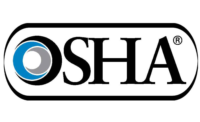On Jan. 12, 2021, the Virginia Safety and Health Codes Board (Board) voted 9-4 to approve a permanent safety and health standard (Permanent Standard) requiring employers to take steps to protect workers form Coronavirus Disease (COVID-19).
On July 15, 2020, the Board approved temporary workplace safety regulations related to COVID-19 (Temporary Standard), making Virginia the first state in the country to do so. The Temporary Standard expires on Jan. 26, 2021, and though the effective date of the Permanent Standard is not yet known, it should be after Jan. 26. Some of the provisions of the Permanent Standard, including the training requirements, will not take effect until 60 days after the effective date.
The Permanent Standard largely mirrors the Temporary Standard and continues to require employers to, among other things:
- Group jobs into categories of high, medium, and low exposure risk;
- Inform employees of the methods of self-monitoring for signs and symptoms of COVID-19;
- Develop and implement policies for employees with symptoms consistent with COVID-19;
- Provide notice to specific individuals who have had contact with infected employees;
- Develop and implement policies and procedures for employees to return to work after testing positive for COVID-19;
- Create a workplace infection protection program if they have job tasks with risks classified as “very high” or “high,” and/or if they have 11 or more employees with job tasks classified as “medium.”
- Train workers on COVID-19 and its infection protection program if the employer has job tasks with risks classified as “very high” or “high”; and
- Not discriminate or retaliate against an employee who wears their own personal protective equipment or raises a reasonable concern about infection control related to COVID-19.
Also, the Permanent Standard retains the Temporary Standard’s “safe harbor” provision. Accordingly, an employer’s actions will be considered in compliance with the Permanent Standard if they comport with a CDC recommendation, whether mandatory or non-mandatory, to mitigate COVID-19-related hazards or job tasks addressed by the Permanent Standard, if such recommendation provides equivalent or greater protection than that provided by the Permanent Standard. That said, the Permanent Standard explains that the Virginia Occupational Safety and Health Administration (VOSHA) will consult with the State Health Commissioner for advice and technical aid before making a determination related to compliance with CDC guidelines.
Note: The Permanent Standard contains some important changes of which employers should be aware including, among other things:
- Using the phrase “close contact” (defined as being within six feet of someone with COVID-19 for a total of 15 minutes or more in a day) rather than just “six feet” when discussing COVID-19 exposure.
- Explaining face shields are not considered a face covering and can be worn only if a face covering cannot be worn due to a medical condition.
- Scaling back the requirement to report all positive COVID-19 cases to the Virginia Department of Health. Instead, employers will be required only to report to the Virginia Department of Health “outbreaks” of two or more cases of their own employees in the workplace within a 14-day period.
- Changing the time-based return-to-work requirement from 10 days with three symptom-free days to 10 days with only one symptom-free day, to be consistent with CDC requirements.
- Eliminating the requirement for employers to comply with respiratory standards when employees travel together in work vehicles due to shortages of N-95 and other respirators.
- Explaining that VOSHA will not bring an enforcement action against employers making good faith efforts to secure personal protective equipment in short supply.
- The Permanent Standard also requires employers with hazards or job-task risks classified as “very high,” “high,” or “medium” to implement certain ventilation controls to air-handling systems under the employer’s control including increasing airflow supply to occupied spaces (provided it does not create a greater hazard), routinely clean and inspect filters, and generate “clean-to-less clean” air movements by reevaluating the positioning of supply and exhaust air diffusers and/or dampers.
The Permanent Standard does not address COVID-19 vaccines or whether employers will be required to mandate their employees receive a COVID-19 vaccine.




